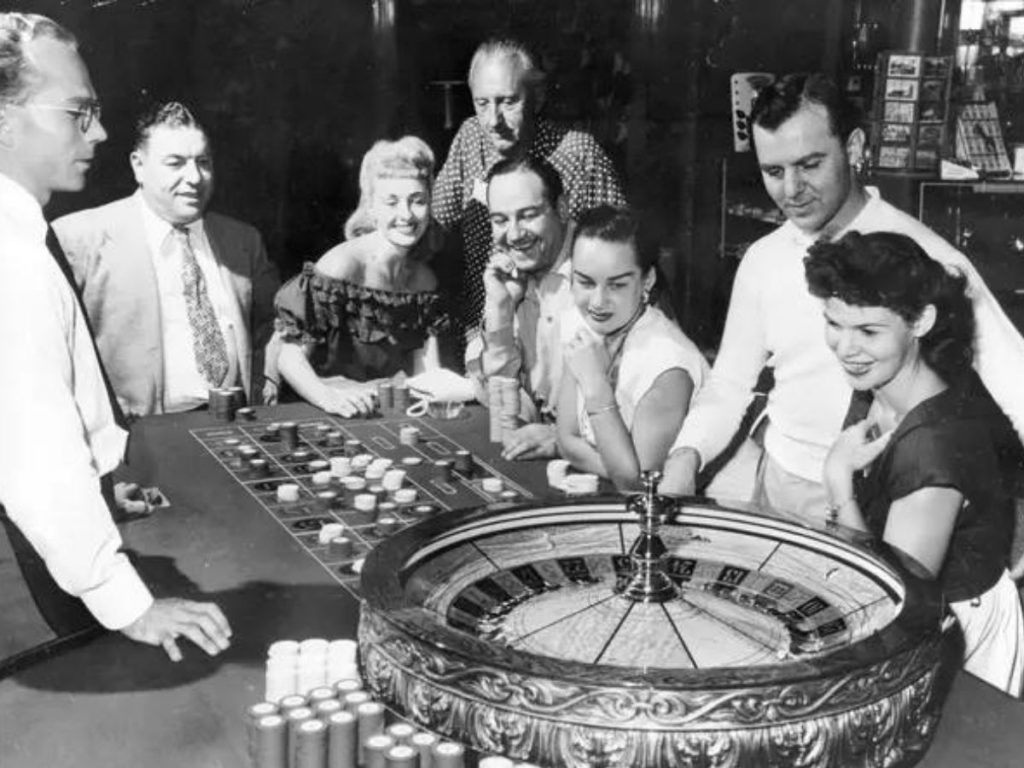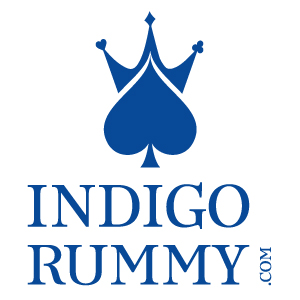The evolution of online gambling: From inception to innovation
Prepend to the content

Gambling has changed a lot because of the internet. Now, people can gamble online from their computers or phones. It’s easier and more convenient than going to a physical casino. From the traditional brick-and-mortar casinos to the virtual domain accessible at the click of a button, online gambling has evolved into a large industry. This evolution is not merely technological; it represents a major societal shift in how individuals engage with games of chance and betting activities. As we look at how online gambling has changed over time, we see a story of new ideas, rules, and how technology and people’s actions affect each other. Starting from simple beginnings and now being everywhere, the story of online gambling shows us a diverse picture of opportunities, problems, and what it means for people and societies overall. Let’s have a look at how the gambling has evolved from the late 1990s to the present day.
The Dawn of Online gambling (1997-2000):
The late 1990s marked the beginning of an era in the gambling industry with the emergence of the first online casinos. In 1997, the digital landscape was a new form of entertainment. As the internet began to spread through the fabric of daily life, it brought with it the potential for a shift in gambling practices. This period witnessed the birth of online gambling platforms, which, though basic in design and functionality, were appealing in concept.
These online casinos offered a range of games compared to their modern counterparts. However, they provided an opportunity for individuals to engage in gambling activities from the comfort of their own homes. Despite facing challenges such as slower internet speeds and regulatory uncertainties, the allure of online gambling attracted a growing number of users, leading to the development of a growing list of online gambling sites.
The initial public reception of online gambling was a mix of fascination and skepticism. On one hand, it opened up a convenient avenue for gambling enthusiasts. On the other hand, it raised concerns over security and the potential for increased gambling addiction. These concerns prompted early regulatory challenges, with different countries grappling with the task of integrating this novel form of gambling into their legal frameworks.
Technological Advancements and Market Expansion (2001-2010):
The period between 2001 and 2010 was important in the history of online gambling, marked by technological advancements and growth into new markets. The early 2000s witnessed a rapid evolution in internet technology, which directly influenced the capabilities and reach of online gambling platforms. Faster internet speeds and improved web technologies enabled more interactive and visually appealing gambling experiences, attracting a broader audience.
This era saw the introduction of varied gambling formats that went beyond traditional casino games. Online poker, in particular, experienced a surge in popularity, partly fueled by televised World Series of Poker events. Sports betting also found a new platform online, appealing to a different segment of gamers. The diversity in gambling options played a crucial role in attracting a wider demographic, further supporting the industry’s growth.
Another critical aspect of this period was the role of software development in enhancing user experiences. Gaming software became better, offering better graphics, more reliable gaming experiences, and innovative features like live dealer games. These technological improvements made online gambling more appealing and accessible, drawing in players who sought a casino-like experience from the comfort of their homes.
As the market grew, so did the attention from regulatory bodies across the globe. Different countries responded with different approaches to regulation, some stating the potential economic benefits while others imposed strict restrictions or outright bans. This era was also not without its challenges; notable scandals and setbacks, including issues of fraud and concerns over fair play, brought forth stricter regulatory measures in several jurisdictions.
Finally, the 2000s were marked by an expansion of online gambling into new geographic markets. The industry’s growth was no longer confined to specific regions but became a global phenomenon. Companies in the sector began to recognize the potential in emerging markets and adapted their strategies to cater to different cultural and legal landscapes. This global expansion not only increased the user base but also added complexity to the regulatory environment, setting the stage for the subsequent era of consolidation and regulation.
The Mobile Revolution and Social gaming (2011-2015):
The years after 2010 marked a transformation in the online gambling industry, primarily driven by the advent of smartphones. This era witnessed the integration of gambling platforms into mobile devices, changing how users interacted with online gambling services. The convenience of smartphones bought a new level of accessibility to gambling, allowing users to play from anywhere at any time, expanding the industry’s reach.
This era also saw the rise of social gambling games. Unlike traditional online gambling, these games, often available on social media platforms, allowed users to engage in gambling-like activities without wagering real money. This model appealed to a broader audience, blurring the lines between gaming and gambling, and introducing a new demographic to the thrill of betting. Social gambling games became a gateway, familiarizing users with gambling mechanics in a risk-free environment.
The mobile gambling surge necessitated regulatory adjustments. Governments and regulatory bodies faced the challenge of adapting existing gambling laws to encompass the evolving nature of online betting. This period saw new regulations aimed at protecting consumers in the rapidly growing mobile gambling environment. These regulations focused on ensuring fair play, preventing underage gambling, and addressing the concerns of problem gambling.
Key players in the industry quickly adapted to these changes. Traditional online casinos expanded their offerings to include mobile-friendly versions of their games. There were also mergers and partnerships between technology companies and established gambling corporations, aiming to leverage each other’s strengths for better market positioning.
The Era of Regulation and Consolidation (2016-2020):
The period between 2016 and 2020 marked a transition in the online gambling industry, characterized by an increased focus on regulation and player protection. This era was defined by major legislative changes in key markets around the world, including the United States, the United Kingdom, and various European countries. These changes were driven by a growing recognition of the need for better oversight to ensure fair play and protect vulnerable individuals from the potential harms of gambling.
In the United States, the repeal of the Professional and Amateur Sports Protection Act (PASPA) in 2018 was a decision. It opened the door for states to legalize sports betting, leading to a rapid expansion of both online and physical sports betting operations. The UK continued to tighten controls. The Gambling Commission introduced stricter age verification checks and enforced limits on deposits and risking amounts, emphasizing responsible gambling.
European countries also witnessed regulatory shifts. Markets like Spain and Italy, which had been relatively liberal, started enforcing stricter advertising guidelines and player protection measures. These changes often involved collaboration between governments, regulatory bodies, and industry stakeholders, highlighting a collective effort to create a safer gambling environment.
The regulatory tightening was supported with a trend towards consolidation in the industry. Several mergers and acquisitions took place during this period, driven by the need to navigate complex regulatory landscapes more effectively and to leverage synergies in technology and market reach. This consolidation helped form some of the industry’s companies, capable of offering a wide range of services across multiple jurisdictions.
Moreover, the rise of responsible gambling initiatives became more prominent. Online gambling operators, under the watchful eye of regulators and the public, began to invest more in tools and resources to promote safe gambling practices. Features such as self-exclusion, deposit limits, and time-out periods became standard on many platforms, reflecting a growing commitment to player safety and wellbeing.
Innovations and the Future Outlook (2021-Present):
The online gambling industry, from 2021 onwards, witnessed an increase in technological innovations that are not only enhancing user experience but are also reshaping the industry’s future. One of the most advancements is the incorporation of blockchain technology. Blockchain has introduced a new level of transparency and security in online transactions, making gambling activities more trustworthy and efficient. It’s particularly influential in ensuring fairness in games and streamlining payments, which has been a longstanding concern in online gambling.
Another development is the integration of virtual reality (VR) into online casinos. VR technology is changing how players interact with online gambling platforms, offering an immersive experience that mimics a physical casino environment.
The rise of eSports betting is another important trend defining the current era of online gambling. With the global popularity of eSports, online betting platforms have begun including various eSports events, drawing in a younger audience and diversifying the gambling market. This integration reflects the industry’s adaptability and its knack for capitalizing on emerging trends.
In terms of user experience, there’s a noticeable shift towards more personalized and interactive services. Online gambling platforms are utilizing data analytics and artificial intelligence to offer tailor-made gaming experiences, enhancing user engagement and satisfaction. These technologies also aid in responsible gambling initiatives by monitoring player behavior and identifying potential problem gambling.
Looking to the future, it’s that legal and technological developments will continue to shape the online gambling landscape. The ongoing push for regulation will likely lead to more standardized practices across different regions, ensuring a safer gambling environment. Technologically, the potential integration of augmented reality and further advancements in mobile gaming are expected to keep the momentum of innovation going.
The post The evolution of online gambling: From inception to innovation appeared first on G2G News.



